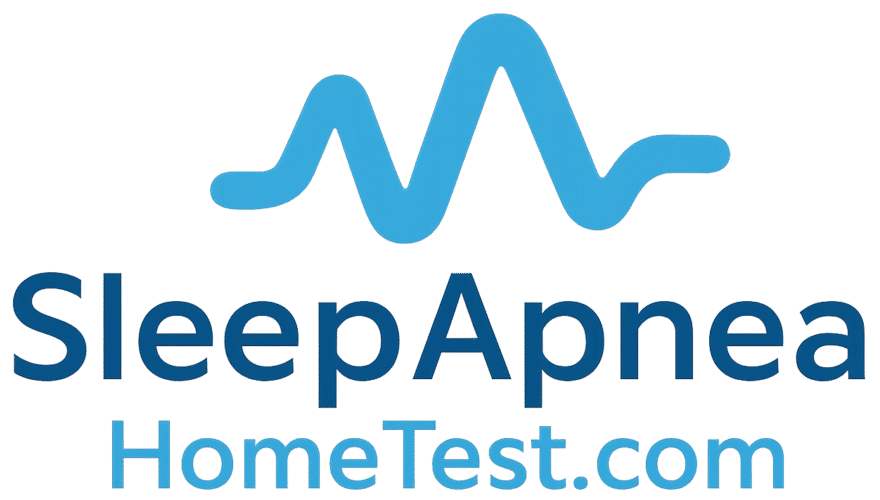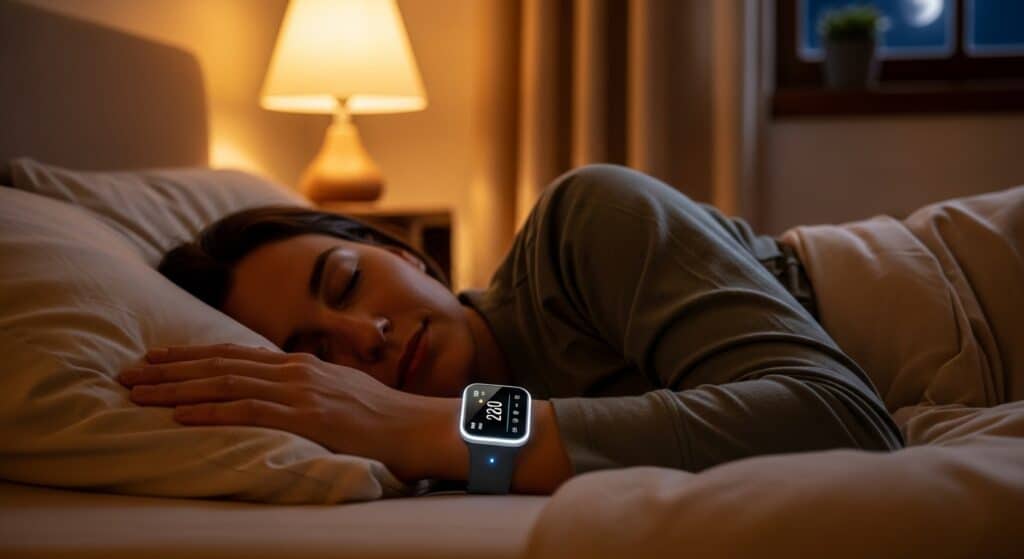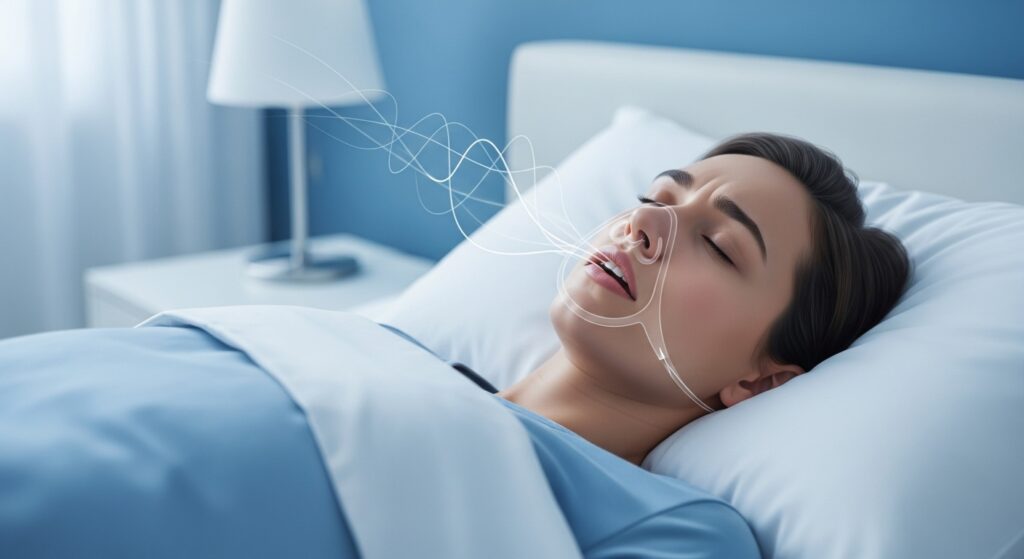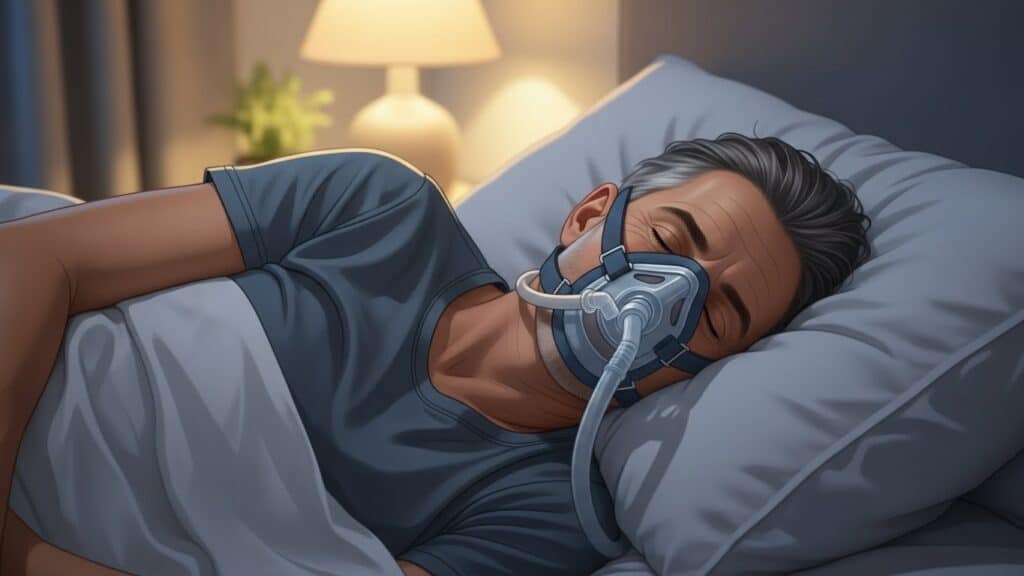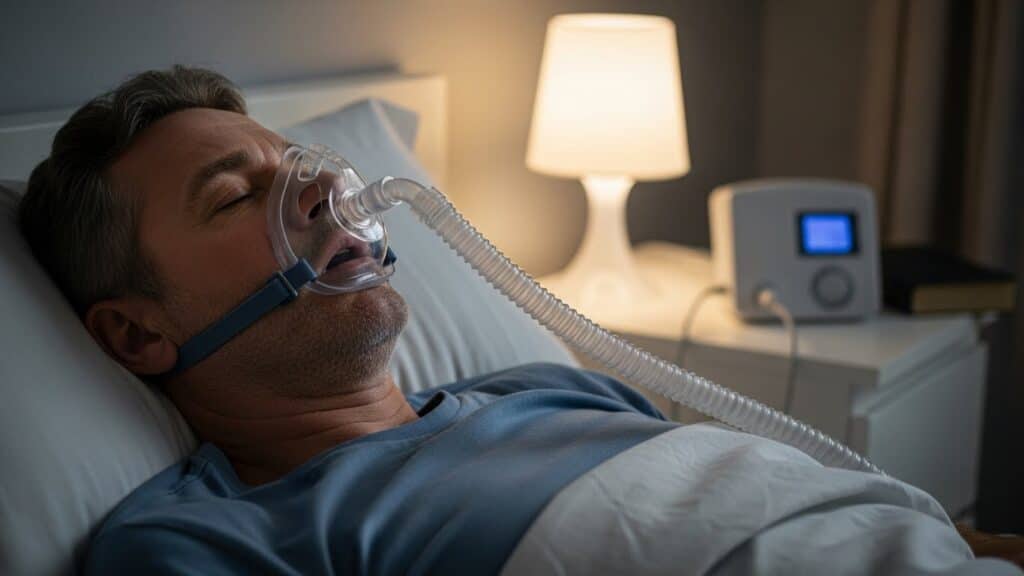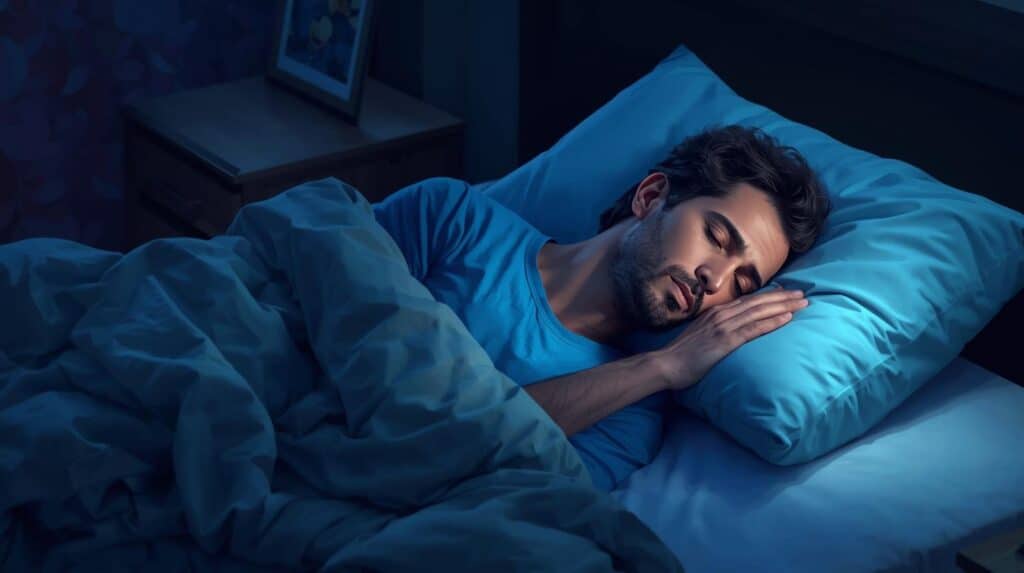A single drink before bed may seem harmless—but for people with or at risk of obstructive sleep apnea (OSA), alcohol can significantly impact nighttime breathing. It’s not just about snoring louder. Alcohol directly alters your Apnea-Hypopnea Index (AHI), the key measurement used to diagnose and track OSA.
Understanding how alcohol affects the airway and sleep structure is essential, especially if you’re working toward better sleep or currently undergoing therapy.
Let’s unpack what happens when you mix alcohol and sleep—and how even modest consumption might interfere with your progress.
What Is AHI and Why It Matters
AHI measures the number of apnea (complete blockage) and hypopnea (partial blockage) events per hour of sleep. An AHI of:
- 5–15 = Mild Sleep Apnea
- 15–30 = Moderate Sleep Apnea
- 30+ = Severe Sleep Apnea
The higher your AHI, the more disrupted your sleep becomes—and the more stress your body experiences from reduced oxygen intake.
If you’ve had a sleep study or used an at-home test, AHI is one of the first numbers you’ll encounter. And yes, alcohol can artificially inflate it.
How Alcohol Affects Airway Muscles
Alcohol is a central nervous system depressant. That means it relaxes the muscles throughout your body, including the muscles responsible for keeping your upper airway open.
The result? You’re more likely to experience:
- Airway collapse when lying on your back
- Longer and more frequent apnea episodes
- Delayed arousal response (your body takes longer to “rescue” itself)
Research in the American Journal of Respiratory and Critical Care Medicine found that even small doses of alcohol significantly increase the duration of apneas, particularly during REM sleep.
Alcohol Delays Your Brain’s SOS Response
Normally, when your airway collapses, the brain detects rising carbon dioxide and low oxygen and signals you to briefly wake up or shift position—restoring airflow.
But alcohol blunts this arousal mechanism, meaning you may stay in an apnea event longer than usual, putting your heart and brain under added strain.
That’s why a glass of wine or whiskey might turn a mild case of OSA into a moderate one, at least for that night.
Increased AHI and Oxygen Drops
Alcohol can lead to:
- Higher AHI readings on both at-home and in-lab tests
- Greater oxygen desaturation (more time spent below 90% SpO₂)
- Longer time to return to normal breathing
One study found that OSA patients who consumed alcohol before bedtime experienced up to 39% more apnea events than on alcohol-free nights.
That means if your typical AHI is 12 (mild), it could easily jump to 17 or higher (moderate), potentially skewing diagnostic results or creating misleading progress metrics.
Alcohol Disrupts Sleep Architecture Too
Beyond breathing, alcohol interferes with your sleep cycles, especially REM sleep, where OSA tends to be most active.
It may:
- Suppress REM sleep early in the night, followed by a rebound that increases apnea severity
- Cause fragmented sleep, meaning you wake up more often
- Trigger dehydration and night sweats, leaving you feeling unrested
This combination makes it harder to determine whether your symptoms are related to your sleep apnea or to the drink you had with dinner.
Is All Alcohol the Same?
Technically, ethanol is ethanol, whether it’s in beer, wine, or spirits. However, certain patterns may worsen outcomes:
- High sugar content, like in sweet wines or cocktails, can increase inflammation and contribute to weight gain
- Larger quantities (even two standard drinks) significantly increase the likelihood of nighttime apneas
- Drinking closer to bedtime (within 1–2 hours) has the most noticeable impact
For those already using CPAP, drinking may also increase air leaks or reduce adherence, particularly if it leads to falling asleep without the device.
Can I Drink at All If I Have Sleep Apnea?
You don’t necessarily need to swear off alcohol for life. But moderation and timing are key.
Smarter Strategies Include:
- Limiting to one drink, especially on weekdays
- Avoiding alcohol within 3 hours of bedtime
- Tracking your sleep on nights with and without alcohol to observe AHI changes
- Using tools like CPAP comfort troubleshooting to improve adherence if drinking occasionally
If you’re undergoing a facial scan or a home sleep test, it’s best to skip alcohol for 24 hours beforehand to avoid skewed results.
What If My AHI Is Only High on Nights I Drink?
This is more common than people realize. If your AHI fluctuates dramatically depending on alcohol intake, you may be dealing with positional or intermittent OSA that’s triggered—or worsened—by muscle relaxation.
Even if you don’t meet the diagnostic criteria for full OSA, these events still:
- Interrupt your sleep
- Lower oxygen supply
- Increase blood pressure
- Create long-term cardiovascular stress
That’s why “I only snore when I drink” is still a red flag.
What If You’ve Already Been Diagnosed?
If you’ve been diagnosed with OSA and are on therapy, here’s how to navigate alcohol:
- Plan your drink early: Have it with dinner, not dessert
- Use your device every night, especially after alcohol
- Stay hydrated, as alcohol dries the airway and worsens symptoms
- If using a mandibular device, make sure it fits securely after drinking
And if you’re on nerve-stimulation implants, check with your provider to confirm alcohol won’t interfere with signal response.
Final Thoughts: Rethinking That Nightcap
It might feel like a relaxing nightcap helps you fall asleep, but in reality, alcohol disrupts everything that makes sleep truly restorative. For people with apnea—or even just unexplained fatigue—it’s often a hidden variable driving symptoms.
Even one drink can:
- Increase your AHI
- Delay airway recovery
- Disrupt REM sleep
- Cause oxygen dips
That doesn’t mean zero alcohol forever—but it does mean understanding your personal sleep response and adjusting your habits accordingly.
If you suspect alcohol may be affecting your sleep apnea diagnosis or treatment, speak with a sleep specialist or track your data. Clearer patterns lead to better outcomes—and better rest.
